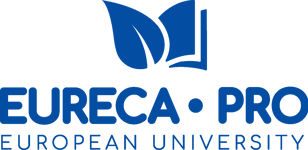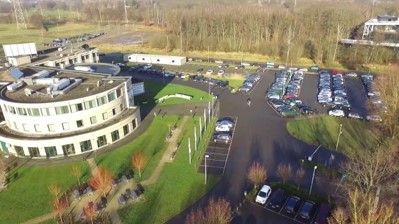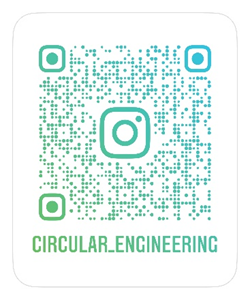SPRING SCHOOL CEAD
Circular Engineering Across Disciplines
2026 Edition - Rethinking Electrification: Powering the Electrified Everything
On-site 3 May-8 May 2026
Virtual 9 May-20 May 2026
The application deadline (15 February 2026) has expired. You can try again next year.


Let the recap movies from previous editions convince you
Circular Engineering Across Disciplines
Spring school CEAD
2026 Edition - Rethinking Electrification: Powering the Electrified Everything
The fifth edition of CEAD will turn its spotlight on a theme that sits at the very heart of the energy transition: electrification. The reason is simple: we finally have renewable energy that is both affordable and scalable. Solar and wind can be rolled out quickly, and when we use electricity, we use energy more efficiently—just think of electric cars or heat pumps. What is even more exciting is that electrification is now reaching into places where it once seemed impossible, from heavy transport to industry.
That is why CEAD 2026 will place electrification at the centre stage. Together, we will explore its many dimensions: electricity production and distribution, energy storage, smart grids, and the role of AI and digital tools in keeping these systems reliable and flexible. In doing so, CEAD also comes full circle. The first four editions explored materials, waste management, industry, and heavy industry. Now, we return to materials and production, but with a fresh perspective—how electrification can transform them and, in turn, our energy future.
Participants will collaborate on international, interdisciplinary group projects and participate in panel discussions, thereby building their communication skills and increasing their awareness of the global importance of decarbonization. The program is designed to equip students with the knowledge and tools necessary to contribute effectively to the transition to a zero-carbon economy.
The Spring School will be held at Hasselt University (Belgium) from Sunday, 3 May (evening), to Friday, 8 May 2026. A virtual component will follow, to be completed by 20 May 2026. The program will be conducted in English.
The application deadline is 15 February 2026, and notification of acceptance is expected by the end of February 2026. The program is open to students pursuing bachelor's and master's degrees in engineering and science fields. Selection will be based on a motivation letter and academic background.
This Summer School is an Erasmus+ Blended Intensive Programme organised by the Faculty of Engineering Technology of Hasselt University in collaboration with KU Leuven and the EURECA-PRO network. Eligible students may apply for an Erasmus+ short-term mobility grant through their home universities.


Programme
Participation in the complete programme (on campus and virtual) is mandatory.
ON CAMPUS PART
From Sunday May 3 (evening 8 p.m.) to Friday May 8 (4 p.m.) 2026, each participant will take part in all the modules.
A SNAPSHOT OF THE WORKSHOPS ...
Learn about SDGs today, apply them tomorrow as transformation engineers! by Prof. dr. Sonja Schreurs, Faculty of Engineering Technology @UHasselt, research centre CMK (Centre for Environmental Sciences), Nuclear Technology Centre, Belgium
Electrifying Intelligence: Co-designing AI Tools for Solar PV with Generative AI by Dr. David Moser and Mousa Sondoqah, Becquerel Institute, Italy
Metamaterials: reconciling lightweight ecological design with good noise and vibration by Prof. dr. Elke Deckers, Faculty of Engineering Technology @KULeuven, research group Mecha(tro)nic System Dynamics (LMSD), Belgium
Underground smart grids by Prof. dr. Wilmar Martinez, Faculty of Engineering Technology @KU Leuven, research group Electrical Energy Systems and Applications, EnergyVille ESAT, Belgium
Material challenges in the energy transition: from mining to recycling by Prof. dr. Jan Ivens and Yixue Zhang, Faculty of Engineering Technology @KU Leuven, research group composite materials, Belgium
Powering the Electrified World: Designing Reliable and Intelligent Power Conversion Systems by Prof. dr. Ehsan Jamshidpour, Faculté des Sciences et Technologie (ENSEM) @Université de Lorraine, research group GREEN (Groupe de Recherche en Energie Electrique de Nancy), France
Solar Design for a Circular Economy: Making PV Modules Easy to Recycle by Prof. dr. Patrizio Manganiello, Faculty of Engineering Technology @UHasselt, research centre imo-imomec & EnergyVille, Belgium
New challenges and modern tools on solar resource and forecasting by Prof. dr. Andreas Kazantzidis, University of Patras, Physics Department, Greece
+company visits
VIRTUAL PART
9 May-20 May 2026
- Online student team meetings to prepare the written report
- Written report on the teamwork
- Quality survey
General learning outcomes and evaluation
Upon completion of CEAD 2026, participants walk away with:
1 | new insights into the position (and limitations) of efficiency and renewables on the road to carbon reduction.
2 | new concepts and approaches that can be used in the development of solutions for carbon reduction.
3 | new knowledge on how AI can contribute sustainably.
4 | new insights in the green optimisation of materials, production and processes in different fields of industry.
5 | fresh perspectives on how effective policymaking can accelerate the energy transition.
And participants have boosted:
5 | their intercultural communication skills and critical thinking through international teamwork.
6 | their awareness of the global necessity and civic interest of the reduction of the carbon footprint.
A jury will evaluate the learning outcomes through a group presentation and a written report.
Week schedule
ON-CAMPUS PART FROM 3 MAY (evening 8 p.m.) to 8 MAY (4 p.m.) 2026
Detailed weekly schedule coming soon.
Application & selection
- Deadline: 15 February 2026 - application no longer accepted
- You can only apply for the complete on-site and virtual programme.
- All applicants will be informed about their selection by the end of February 2026.
- Selection will be based on your motivation, study results and progress, study field, and gender to ensure interdisciplinarity and diversity of committed student teams with a general background in engineering and sciences.
Registration fee and budget
- No registration fee
- Welcome drink, lunches, a group dinner, and a cultural activity offered by the organisation
- Free bike available throughout the week
- Accommodation offered by the organisation
- Travel and visa costs, transport, and other meals at your own expense.
- Participants from partner universities can apply for an Erasmus+ grant to cover most of the costs of short-term mobility at their home university.
Accommodation & Travel Info
Accommodation
Shared rooms with breakfast will be booked for you in a hotel in Diepenbeek, near the campus.
Travel info
Any booking of flights or other travel before your official acceptance for the summer school is your responsibility.
Where are we
Hasselt University (UHasselt), Faculty of Engineering Technology (IIW), Campus Diepenbeek
Campus Diepenbeek

City of Hasselt
The city of Hasselt is only 4 km from campus Diepenbeek and has much to offer. Be sure to visit it.
Coordination & Organisation
Academic coordination
Prof. dr. Bart Vermang (UHasselt)
Prof. dr. Ir. Eric Demeester (KU Leuven)
Administrative coordination and contact
Mrs. Karine Evers | karine.evers@uhasselt.be
Organisation
Faculty of Engineering Technology
UHasselt - KU Leuven
Agoralaan Buildings H and B
3590 Diepenbeek
BELGIUM
With the support of EURECA-PRO and Erasmus+.
Follow us on Instagram
circular_engineering

